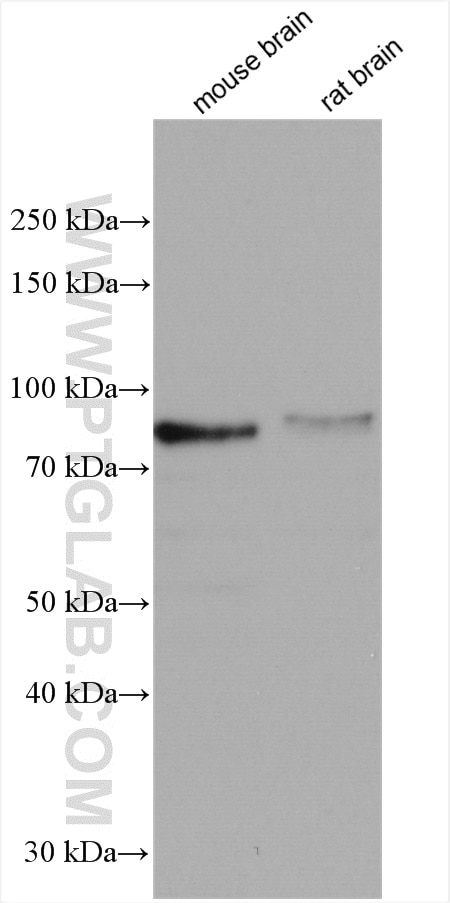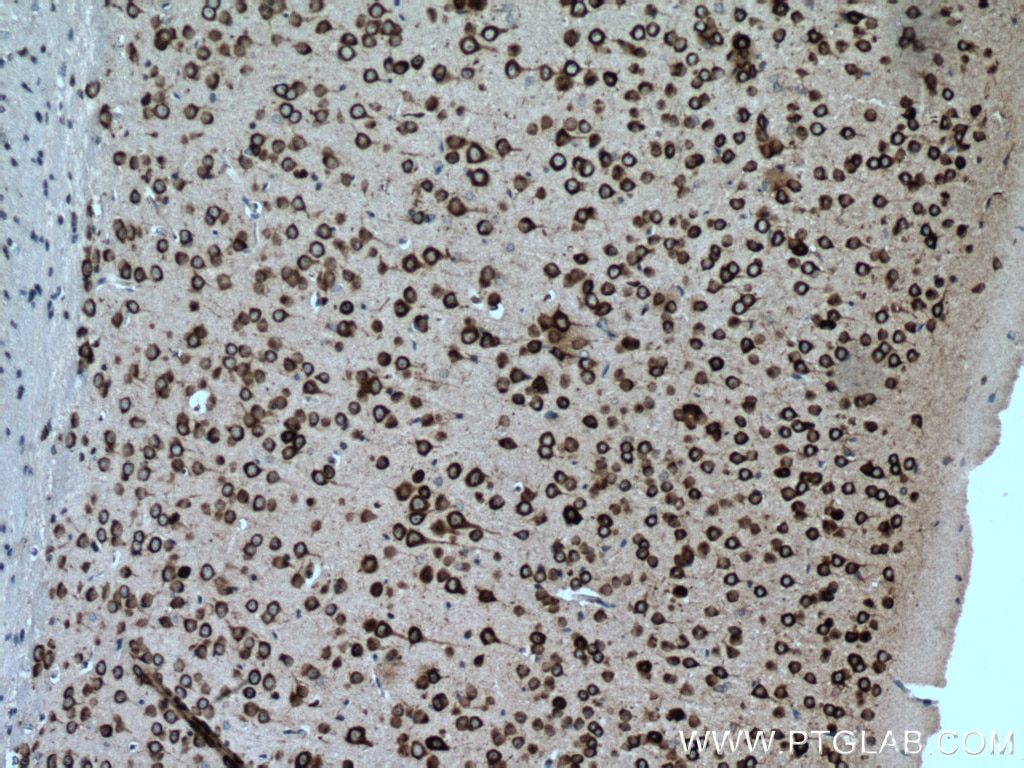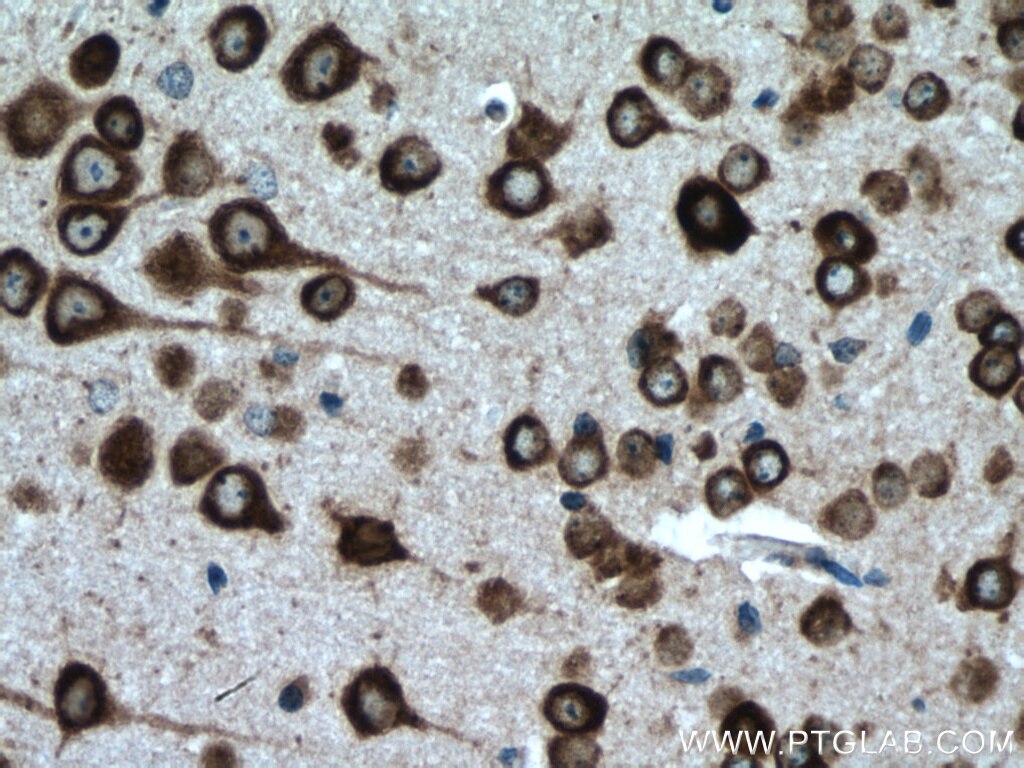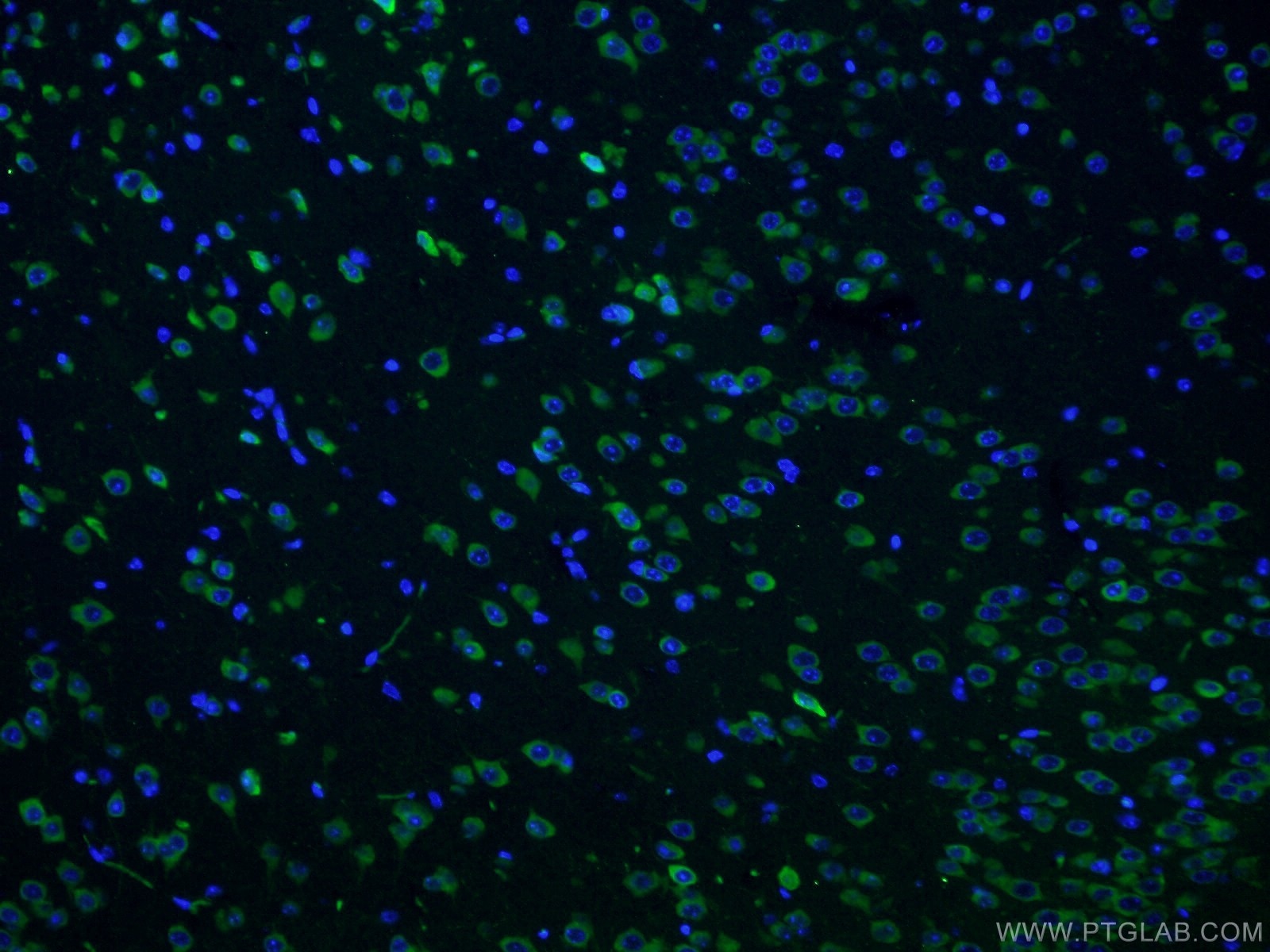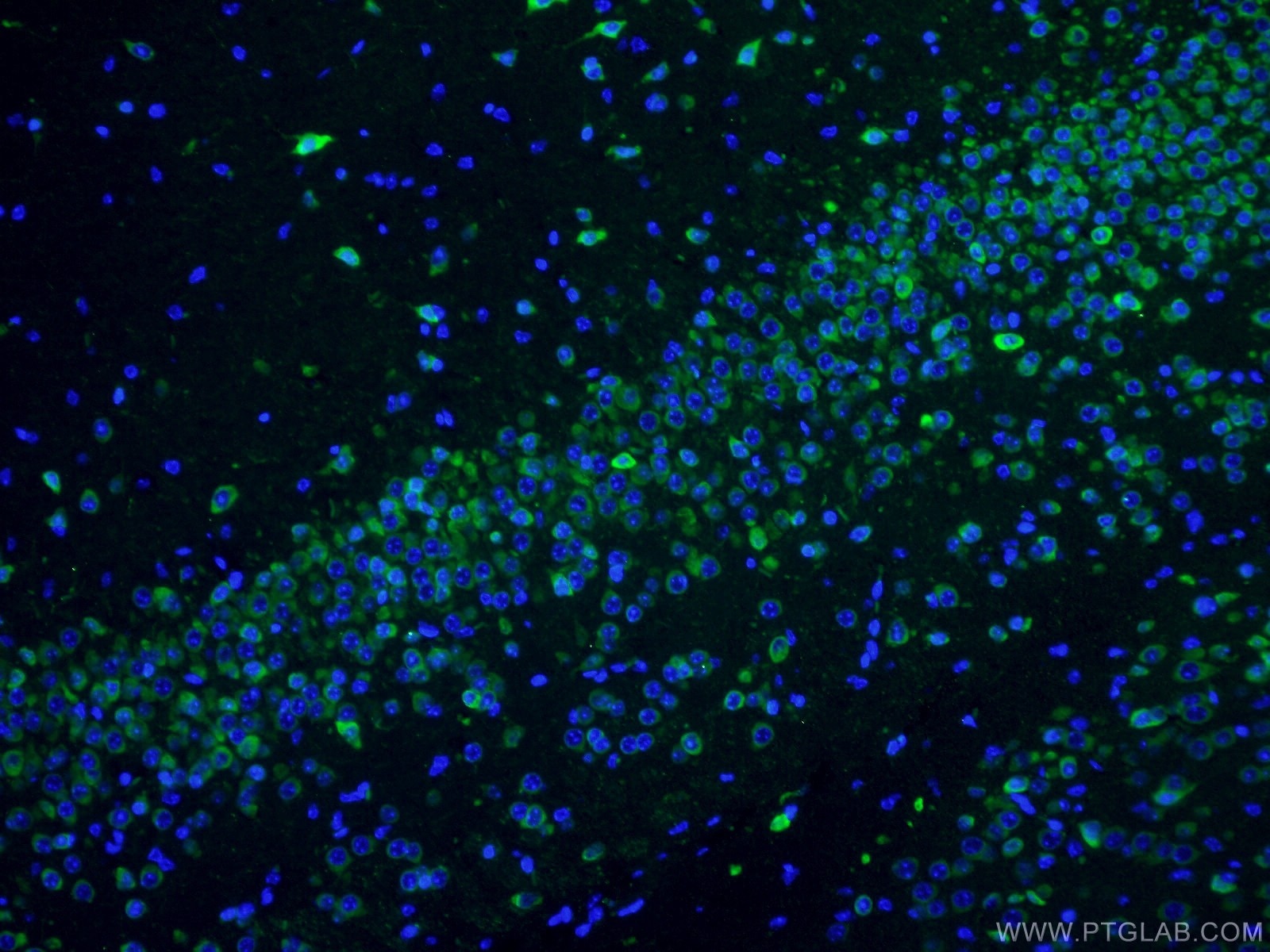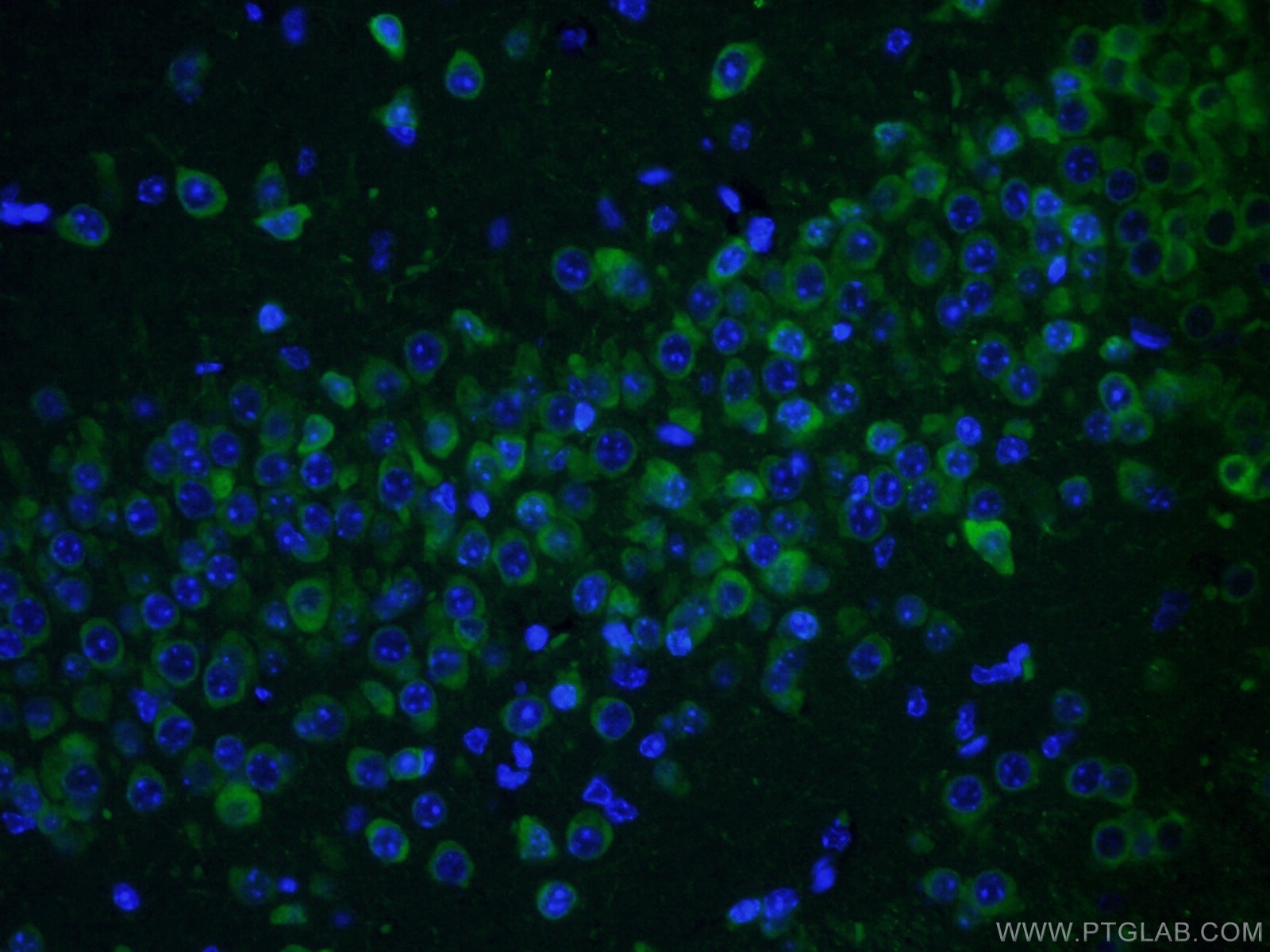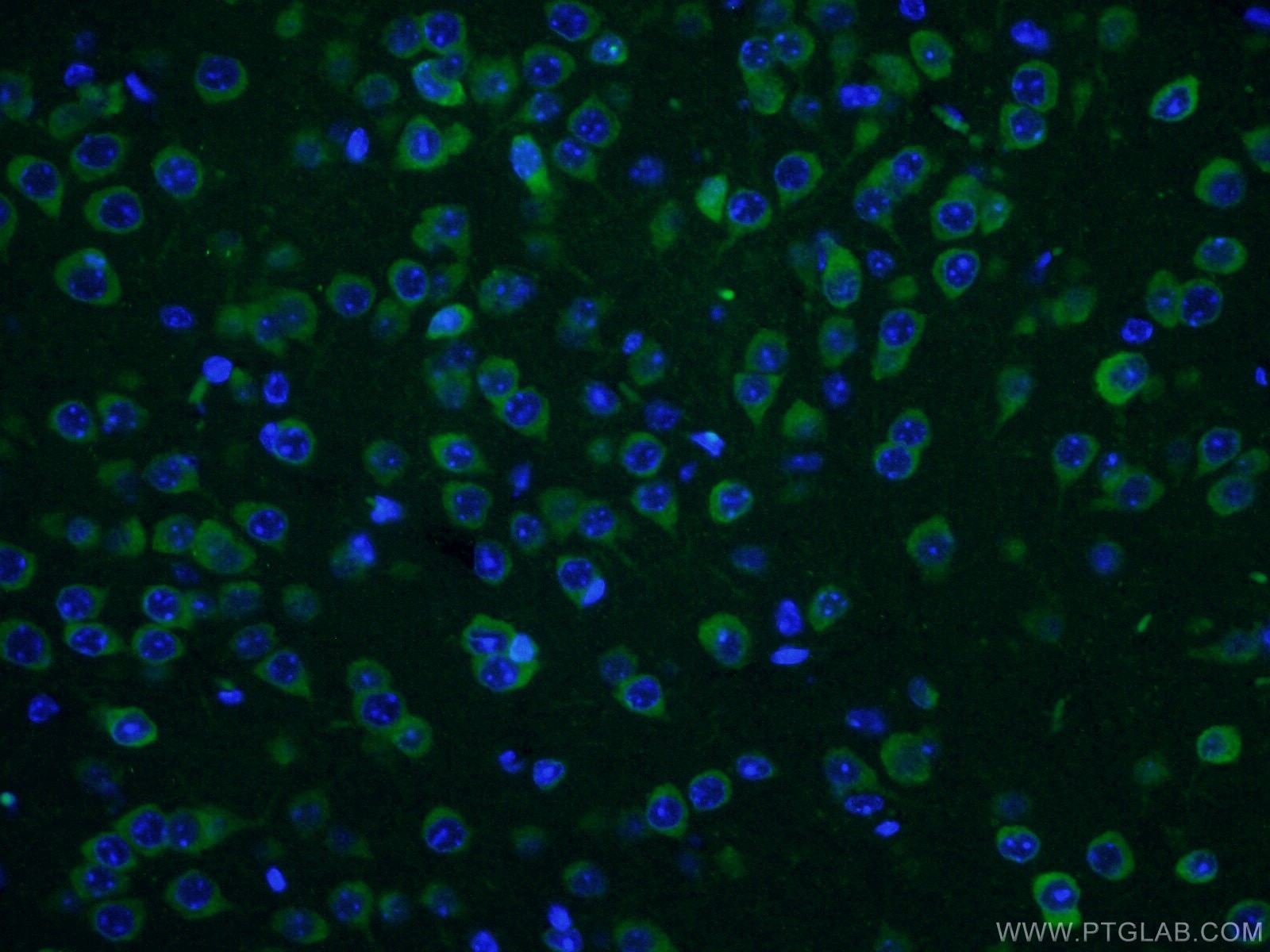Anticorps Polyclonal de lapin anti-CPEB3
CPEB3 Polyclonal Antibody for WB, IF, IHC, ELISA
Hôte / Isotype
Lapin / IgG
Réactivité testée
Humain, rat, souris
Applications
WB, IHC, IF-P, ELISA
Conjugaison
Non conjugué
N° de cat : 12669-1-AP
Synonymes
Galerie de données de validation
Applications testées
| Résultats positifs en WB | tissu cérébral de souris, tissu cérébral de rat |
| Résultats positifs en IHC | tissu cérébral de souris, il est suggéré de démasquer l'antigène avec un tampon de TE buffer pH 9.0; (*) À défaut, 'le démasquage de l'antigène peut être 'effectué avec un tampon citrate pH 6,0. |
| Résultats positifs en IF-P | tissu cérébral de souris, |
Dilution recommandée
| Application | Dilution |
|---|---|
| Western Blot (WB) | WB : 1:500-1:1000 |
| Immunohistochimie (IHC) | IHC : 1:50-1:500 |
| Immunofluorescence (IF)-P | IF-P : 1:50-1:500 |
| It is recommended that this reagent should be titrated in each testing system to obtain optimal results. | |
| Sample-dependent, check data in validation data gallery | |
Applications publiées
| WB | See 1 publications below |
Informations sur le produit
12669-1-AP cible CPEB3 dans les applications de WB, IHC, IF-P, ELISA et montre une réactivité avec des échantillons Humain, rat, souris
| Réactivité | Humain, rat, souris |
| Réactivité citée | Humain |
| Hôte / Isotype | Lapin / IgG |
| Clonalité | Polyclonal |
| Type | Anticorps |
| Immunogène | CPEB3 Protéine recombinante Ag3351 |
| Nom complet | cytoplasmic polyadenylation element binding protein 3 |
| Masse moléculaire calculée | 697 aa, 76 kDa |
| Poids moléculaire observé | 76-80 kDa |
| Numéro d’acquisition GenBank | BC036444 |
| Symbole du gène | CPEB3 |
| Identification du gène (NCBI) | 22849 |
| Conjugaison | Non conjugué |
| Forme | Liquide |
| Méthode de purification | Purification par affinité contre l'antigène |
| Tampon de stockage | PBS avec azoture de sodium à 0,02 % et glycérol à 50 % pH 7,3 |
| Conditions de stockage | Stocker à -20°C. Stable pendant un an après l'expédition. L'aliquotage n'est pas nécessaire pour le stockage à -20oC Les 20ul contiennent 0,1% de BSA. |
Informations générales
CPEB3, the cytoplasmic polyadenylation element-binding protein 3, contains a Q/N-rich domain at its N-termina which is required for the aggregation of CPEB3. The expression of CPEB3 is downregulated in cervical cancer and hepatocellular carcinoma compared with normal tissue. It has been reported that the aggregation and activity of CPEB3 is controlled by SUMOylation. CPEB3 is SUMOylated in hippocampal neurons in the basal state while converted into an active form which is associated with a decrease of SUMOylation and an increase of aggregation. CPEB3 is expressed in cytoplasma in unstimulated neurons but translocates to the nucleus following neuronal stimulation.
Protocole
| Product Specific Protocols | |
|---|---|
| WB protocol for CPEB3 antibody 12669-1-AP | Download protocol |
| IHC protocol for CPEB3 antibody 12669-1-AP | Download protocol |
| IF protocol for CPEB3 antibody 12669-1-AP | Download protocol |
| Standard Protocols | |
|---|---|
| Click here to view our Standard Protocols |
Publications
| Species | Application | Title |
|---|---|---|
Pharmacology MiR-224 Executes a Tumor Accelerative Role during Hepatocellular Carcinoma Malignancy by Targeting Cytoplasmic Polyadenylation Element-Binding Protein 3. |
